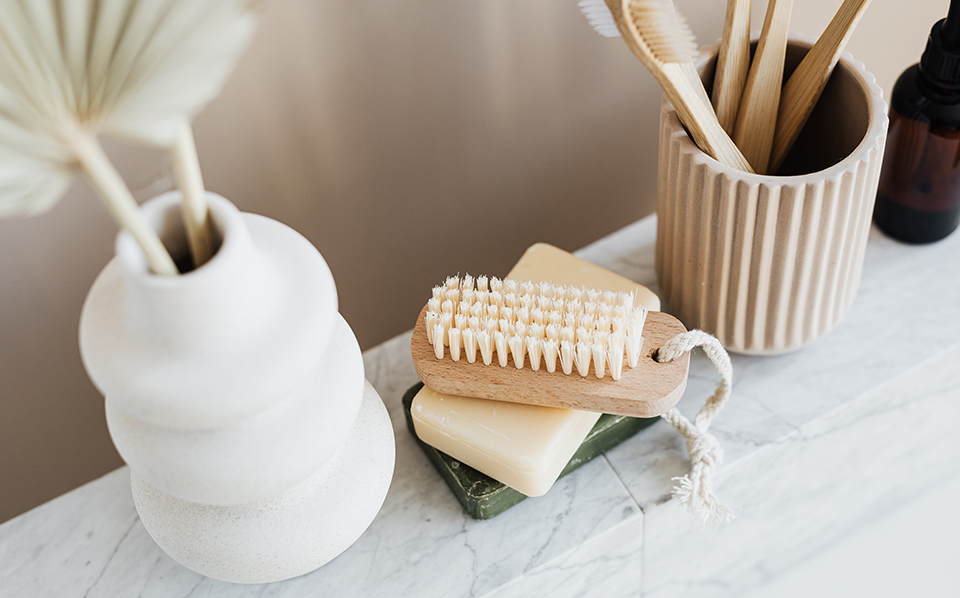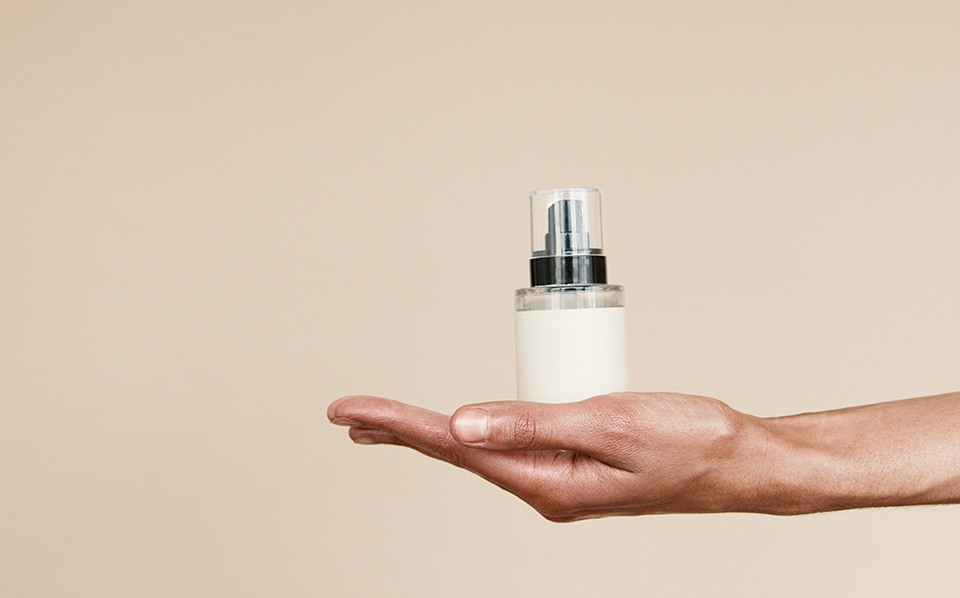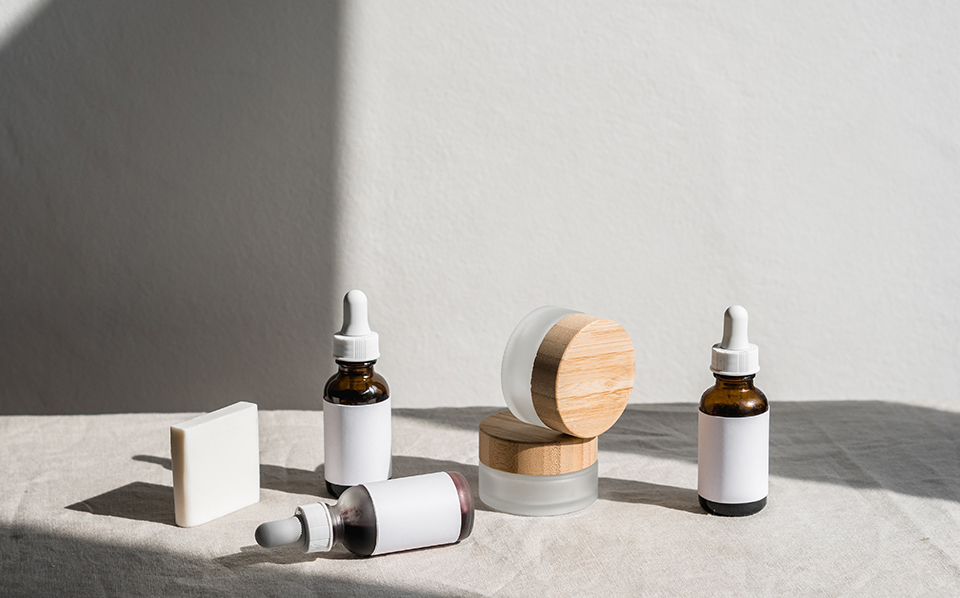
In recent years we are seeing a boom in the terms "natural beauty" and "sustainable beauty", usually going hand in hand with each other, but what is sustainable beauty? Is it the same as natural beauty?
Natural is not the same as sustainable
The first thing that we must be clear about when defining the concept of sustainable beauty is that it is not the same as natural beauty. Let's see the definition of both concepts: Natural: according to Ecocert*, a natural product is one that contains 95% vegetable ingredients from organic farming. Sustainable: according to the RAE, a sustainable product is one that can be maintained for a long time without depleting resources or causing serious damage to the environment. Therefore, they are totally different concepts. Yes, it is true that natural cosmetics can be sustainable, although conventional cosmetics can also be. In fact, there are processes for extracting natural ingredients that can be very polluting. To determine if a cosmetic brand or product is considered sustainable, we must consider several concepts within the value chain. *It must be considered that there is no legal regulation to regulate natural cosmetics and certificates such as Ecocert are issued by private entities.

Product formulation
Sustainability begins at the very beginning, before the creation and production of the product. When formulating it, we must consider what raw materials we choose, what their origin is, if they are made with sustainable processes... both natural and synthetic. It will also be advisable to bet on minimalist formulas, with concentrated active ingredients that are highly effective, thus reducing the need to add dispensable ingredients.
Production
The production process is one of the most important when determining the sustainability of a brand or product, since it is here where the major energy consumption, pollution or waste can be generated.
Therefore, we must consider the following concepts, among others:
1.Saving water and energy 2.Pollution 3.Waste management 4.Storage 5.Use of renewable energy
Packaging
It's no secret that the cosmetics industry generates thousands of plastic waste every year. Plastic is usually the material chosen for cosmetic containers due to its resistance, its ease of transport and its price. It is very important that the packaging used has been made from recycled material, is 100% recyclable and/or biodegradable and reusable. We will also try to reduce the use of plastic by using alternative materials, or even eliminate packaging altogether for solid products.

Distribution
Same as the packaging, we must take care that the boxing for the products’ transport is sustainable. The material used must also be recyclable and we will use packages made from recycled materials. Another important point is to reduce plastic in packaging. Although the box is made of cardboard, many times the products are protected with large amounts of plastic. As an alternative we can use paper or biodegradable materials. Within the distribution we also find transportation. Here we must consider the optimization of routes and the use of less polluting vehicles.
Consumption
The last step in the life cycle of a product is its consumption and post-consumption, where the responsibility relays on the consumer. The consumer plays a very important role when determining the sustainability of a product, since a large part of the environmental impact of a product can occur in its consumption phase. To carry out a sustainable use of a cosmetic product, the consumer must consider the following actions: - Use of water and energy when using a product: many times, we use more water than is necessary to use cosmetic cleansing products. A gesture as simple as turning off the water while we wash our hands, for example, represents great savings in the long term. - Correct recycling of the product and its packaging: it is useless for a product to be recyclable if we do not recycle it correctly when we are going to get rid of it. If the material is not biodegradable, it is very important that we dispose of it in the correct container. - Responsible consumption: in recent years the cosmetics industry has grown very fast and has generated massive consumption by consumers. Generally, we consume more than we need, so we should adjust our consumption to our real needs. Although these actions must be carried out by consumers, it is also important that companies educate them and explain how their packaging is recycled or reused. There are also ways to encourage recycling, such as giving away products or providing discounts to customers who return packaging to the brand so they can recycle or reuse it.

CBD or cannabidiol is a molecule present in the seeds of the Cannabis Sativa plant, also known as hemp. It has the ability to interact with the human body through the receptors of the endocannabinoid system. Traditionally, CBD was used as a dietary supplement or drug treatment to help reduce symptoms of inflammatory diseases, chronic pain, anxiety, depression, and some neurological diseases. But in recent years its use in the cosmetic industry has increased, to the point of becoming the new fashionable ingredient.
CBD is mainly used for the development of skin and hair products. The potential is great after the first studies, while further studies will reveal the full scope of this active ingredient. If you want to know more about the CBD trend:

In an industry as large as cosmetics, where we can think that everything has been invented, it can be difficult to stand out from the competition and earn a place among the brands best valued by consumers. This industry is constantly evolving, the trends of a few years ago are now completely obsolete and the new generations demand more ethical, simple and effective cosmetics. In this post we want to compile 6 essential values and actions that a cosmetic brand must take into account to attract the attention of the public, according to the trends that we have experienced in recent years and those that are to come in the coming years.
1. Transparency
If there is something that consumers are demanding more and more, it is the transparency of brands regarding their ingredients and manufacturing processes. Indicating the list of ingredients of a product on the packaging is mandatory, but we cannot always find it on the brand's website. Increasingly, consumers are looking online for information about a product. If they don't find the information they're looking for, they probably won't buy that product. Just as consumers consult the web pages of brands, on many occasions they contact them directly to solve any doubts they may have. It is important to answer in a clear way and give an answer that provides confidence to the consumer.
2. Sustainability
Sustainable cosmetics are the future, there is no doubt about that. Brands with little commitment to the environment and social and economic well-being are receiving more and more criticism and may see their sales reduced for this reason. The public demands a commitment to sustainability and it can become a very important factor when deciding which product to buy.

3. Inclusivity and ethics
Just like sustainability, it is increasingly important for a brand to be inclusive with its products, creating cosmetics suitable for all races, genders and skin types. Brands must also show a commitment to the social problems we are currently experiencing, taking actions that can create a real impact.
4. Personalization
Whether through personalized products or providing cosmetic advice, customization is a growing trend that is increasingly present in the cosmetic sector. Many times we make the mistake of buying a product for its fame and not for the benefits it can bring to our skin. Not all products work on all skin types, and the disappointment of having tried a “miraculous” cosmetic that did not work for us leads us to seek more personalized attention to achieve a truly effective routine for our skin.

5. Simplicidad
Gone are the 10-step routines that became so trendy a few years ago. Simplicity and minimalism are a trend, partly caused by the changes in our lives in the last year. This is a factor that is closely linked to sustainability, since it means the reduction of products in our routines and the production of simple formulas with few ingredients.
6. Online presence
Finally, it is essential that a cosmetic brand is present online. Currently, social networks provide a reach that is impossible to achieve offline, to the point that practically all the clients of a brand come from social networks such as Instagram or TikTok.